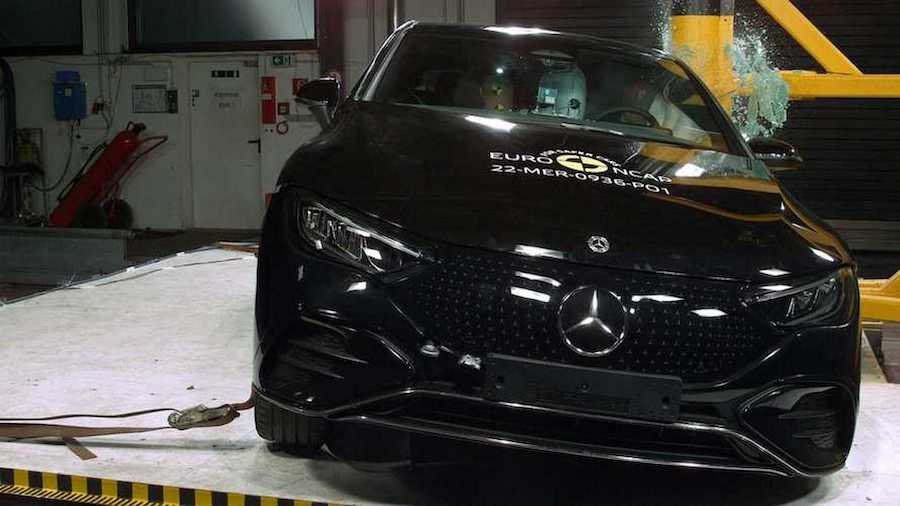Mercedes Crash Testing Cars From Rivals To Make Its Models Safer

It's not just independent organizations such as the Euro NCAP, ADAC, or the IIHS that are doing crash tests to assess how safe a vehicle is in case of an accident. Before putting their future models into production, automakers run their own tests, and Mercedes says it's going the extra mile by even crashing vehicles developed by its competitors. Finding out how rival cars fare helps the German luxury brand improve the safety of its own models.
In an extended interview with Autocar, Mercedes CEO Ola Källenius was asked how the company is going to fight incoming Chinese competition in Europe. After confidently saying the recently unveiled Concept CLA sedan previews a model “it's hard to find any car that can beat that," the head honcho talked about safety.
"No company has a longer, deeper safety pedigree than Mercedes. You can go to an insurance company or safety rating agency and pick up some stars. We always say one star is enough: the Mercedes star. We do a whole range of tests nobody else does. We crash our vehicles, we crash competitor vehicles and we have a feeling for what works and what doesn’t."
He went on to mention that the attention to detail during development gives the three-pointed star the edge over its Chinese rivals, hence why he's not worried about new makes and models arriving in Europe.
During the same interview, Källenius reiterated Mercedes is working on futureproofing its lineup by spending "double-digit billions of euros" on next-generation electric vehicles. The company has already said it wants to go purely electric as early as 2030 "where market conditions allow." However, it's not bidding adieu to gasoline and diesel engines just yet as the head honcho says hybrid "high-tech ICE vehicles" will be necessary in the next decade.
The discussion also touched on e-fuels, but Källenius said battery-powered EVs are still 70 percent more efficient once you factor in the entire production process. In addition, for e-fuel to gain traction, it needs to be industrialized, but he's not seeing that happening this decade.
Related News
